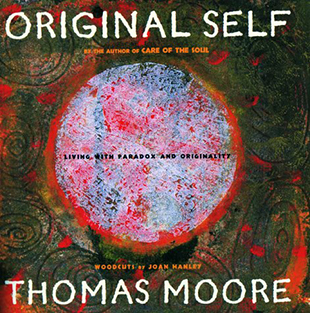"The Savior laughed and said to them: 'What are you thinking about? [Why] are you perplexed? What are you searching for?' Phillip said: 'For the underlying reality of the universe and the plan.'
—The Sophia of Jesus Christ
"Deep trust and good humor are signs of spiritual wisdom.
"I am surprised that in the sacred scriptures Jesus is rarely, if ever, shown laughing. Some of his sayings are certainly comic, and I have no doubt that a clever writer could produce a one-man show of Jesus teaching a cynical world his upside-down philosophy of love. In this passage from an early Gnostic tale, his followers interview Jesus after his resurrection. We find the devoted and serious disciples wondering about the underlying nature of the universe and its plan. Jesus laughs at their lofty questions and teaches them about holy ignorance and divine ineffability.
"A certain kind of laughter erupts from a comfortable consent to the lowliness of human nature. We laugh when a child discovers some basic truth, like the principle of gravity Many traditions show the Buddha, that figure of absolute composure in the face of pure existence, smiling or laughing. For many years I have kept on my desk a laughing Buddha who is swarming with little monks who crawl all over his ample torso. In the sacred story of Hermes, from the ancient Greeks, the child god approaches the great Zeus as his brother Apollo complains about his audacity. Zeus laughs and reconciles these two fundamental life structures — impish, unpredictable Magic and cool blue Logic.
"I understand Jesus to be saying, 'Why are you asking all these questions? Get on with life and have some faith.' Later in this remarkable gospel Jesus describes how the world came to be and offers an alternative to bland curiosity: 'Son of Man consented with Sophia, his consort, and revealed a great androgynous light. His male name is designated "Savior, Begetter of All Things." His female name is designated "All-Begettress Sophia." Some call her "Pistis." '
"Pistis means 'trust.' To create a worthy life, we may have to trust rather than gain insight into the overall plan. When our faith is fragile, and we have to insist on our own beliefs at the expense of others', the comfort needed for laughter is missing. The kind of laughter modeled by Jesus, the Buddha, and Zeus is rooted in humble acknowledgement of our limitations. We laugh because we can live comfortably not knowing everything.
"A few writers have pictured Jesus as a comic, a significant sign of his divinity. But the stand-up comedian and the film comic are also Christ figures. They help us get some distance from our dangerous seriousness. A person who believes too earnestly in his own convictions can be dangerous to others, for absence of humor signals a failure in basic humanity. The laughter of the holy sage is the beginning of wisdom, and wisdom, Sophia, is deep trust joined with knowledge.
"Some laughter is cynical and crude, but there is another kind that expresses a simple trust in life. I have heard this laughter from many men and women of wisdom I have known over the years, and I am certain that Jesus laughed in this way as he taught. It is unfortunate that the church established to perpetuate his presence has chosen not to picture a laughing Jesus. It is an oversight that leaves the teaching unnecessarily severe and incomplete.
"Life is a divine comedy, and until we discover how those two words go together, we will be condemned to spiritual depression and severity, signs that we have not yet found God and that we are layers and eons away from our original self. In the mystical land before our birth, heartfelt laughter is the signal that God is present."
Back to reading a full review of this book.
